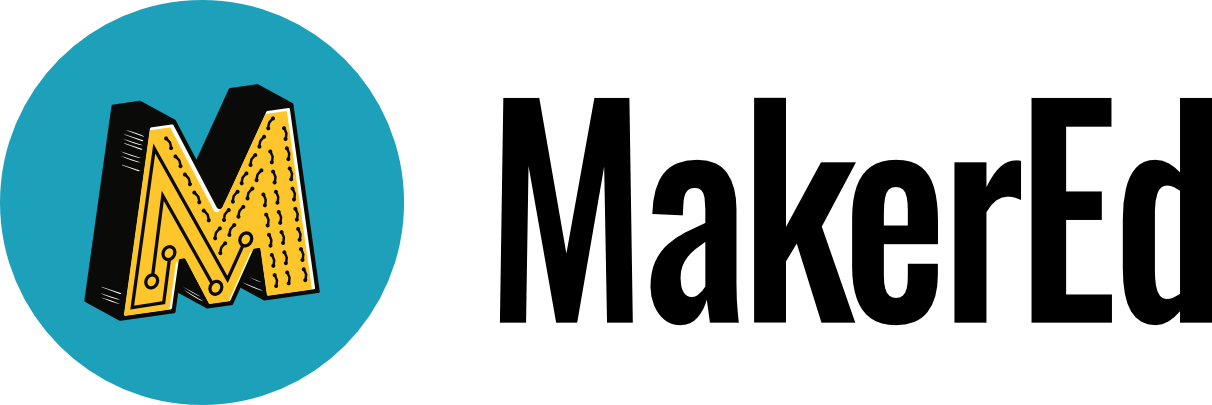Broadening Participation in Making
Panelists – Gabriela Gonzalez (Intel Corporation), Michele Carlson (Tehama County Makerspace / Future Development Group, LLC), Sepi Hejazi Moghadam (Google), Luz Rivas (DIY Girls), Quincy Brown (AAAS Science & Technology Fellow)
This panel will examine how to broaden participation and diversity in the Maker Movement. Research shows that broadening participation in making is critical, particularly for groups historically underrepresented in computer science and engineering fields since making can build interest in STEM and increase the size of the ‘well’ of people for the STEM pipeline. Panelists will discuss strategies for broadening participation, what has been effective, and represent different perspectives on what diversity in making could look like.
The Big Idea is Their Idea: Tinkering with Maker-Centered Learning
Karen Wilkinson and Mike Petrich, Exploratorium
Karen Wilkinson and Mike Petrich are the founding directors of the Exploratorium’s Tinkering Studio and wrote a book called The Art of Tinkering, which highlights tinkering as a serious endeavor and part of the making process they’re particularly passionate about. They’ll share their perspective on maker-centered learning that can happen at the intersection of art, science and technology and why they’re so committed to the promise of making and tinkering for museums, schools and libraries.
Developing Professional Learning Communities to Support Maker-Centered Learning
Edward Clapp, Agency by Design
Maker-based activities often occupy a precarious space in the structure and curriculum of traditional schools. This makes it especially important to develop learning communities that scaffold and connect educators who often work in isolated siloes. During this interactive session, Project Zero researcher Edward Clapp will introduce participants to the educator study groups established by PZ’s Agency by Design initiative—an investigation of the promises, practices, and pedagogies of maker-centered learning. The goal for this session is to provide participants with tools they can use to establish learning communities that are supportive, task-oriented, and welcoming to others.
Brick By Brick: Scaling and Sustaining Maker Programs
Stephanie and Shawn Grimes, Digital Harbor Foundation
In 2014, the Digital Harbor Foundation served approximately 600 local youth. Within the first three months of 2015, we served more youth than all of last year and are on track to serve more than 2,500 youth this year. In this presentation, Shawn Grimes (Director of Technology) and Steph Grimes (Director of Education) will discuss how DHF has managed (and sometimes struggled) to scale our programs without negatively impacting our organization’s effectiveness, culture, or health. Come benefit from lessons we have learned along the way and get advice about some traps to avoid if you choose to grow or expand your programs.
Meaningful and Measureable Making
Mac Cannady, Lawrence Hall of Science
How do we know that making is making a difference? Making has been characterized by interest-driven engagement in creative production at the crossroads and fringes of disciplines such as science, technology, engineering, art, and math. Many advocates and researchers argue that making has emerged as an engaging entry point and activity for STEM education. This talk will explore these issues and share insights about meaningful measurement in making.
The Prospect of Micro-Credentialing in Maker Education
Jessica Parker, Sonoma State University
Peer communities matter. With ever-increasing opportunities to engage in maker activities, events, and professional development, how can micro-credentialing recognize and validate learning within maker communities? Or are micro-credentials even needed in an age of do-it-yourself (DIY) and do-it-together (DIT)? This talk will discuss the value of micro-credentialing within maker education and also highlight points of opportunity as well as discord within the Maker Movement.
Remaking Learning in a “Maker City”: How Ecosystems Can Catalyze and Propel Learning
Randy Paris, Sprout Fund
What if every teacher had open access to rich professional development to link making to the classroom? What if a critical mass of out-of-school learning environments offered their spaces, services, and staff to support students’ maker learning pathways? What if the power of your community’s universities, philanthropic leaders, entrepreneurs, and political leadership came together to support maker learning?
Through the Remake Learning Network, a collaborative group of over 200 organizations supporting 21st century learning innovation, Pittsburghers are coming together to make sure that all our region’s learners can benefit from a vibrant maker ecosystem. Find out how you can capitalize on a network-based approach in your town.
